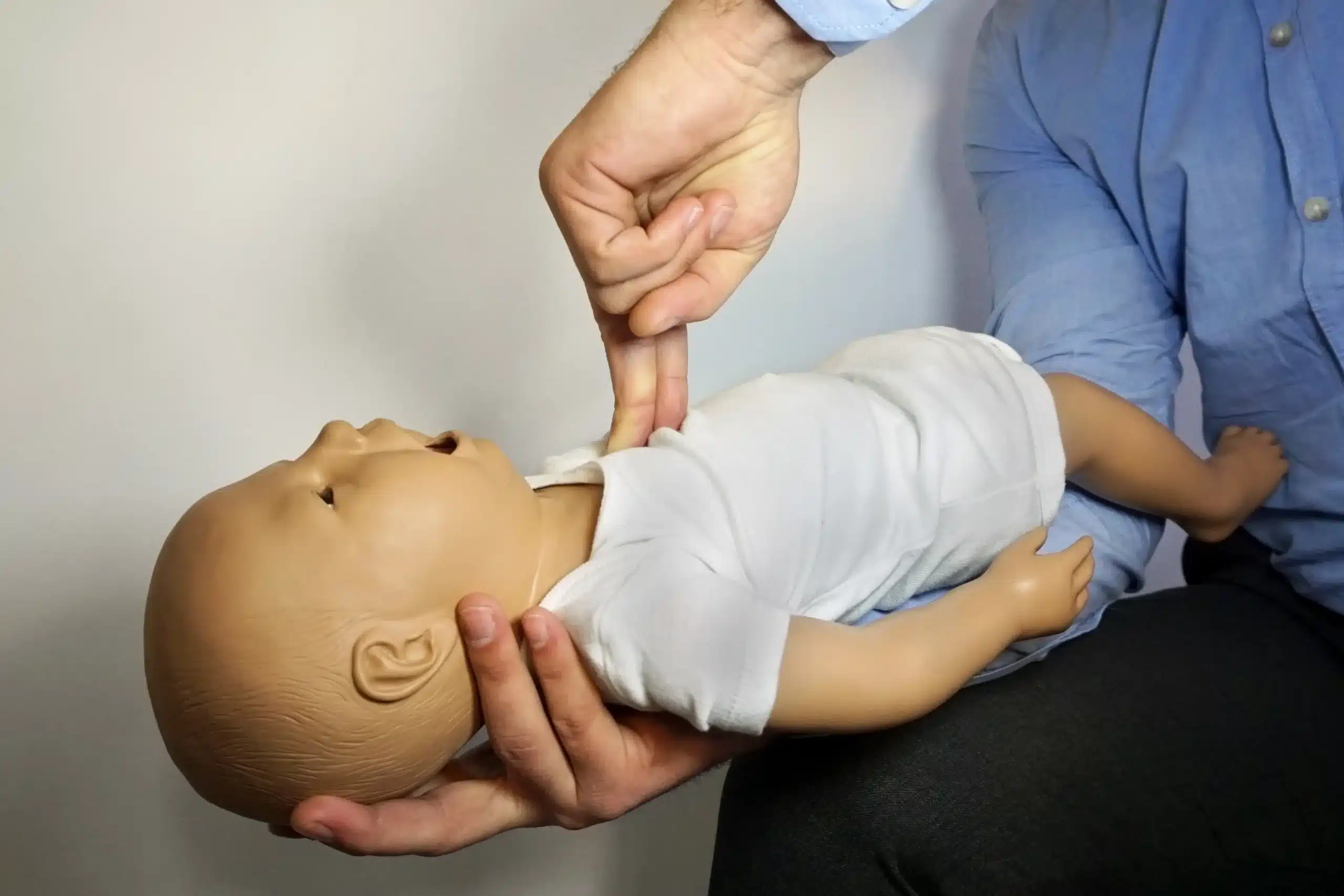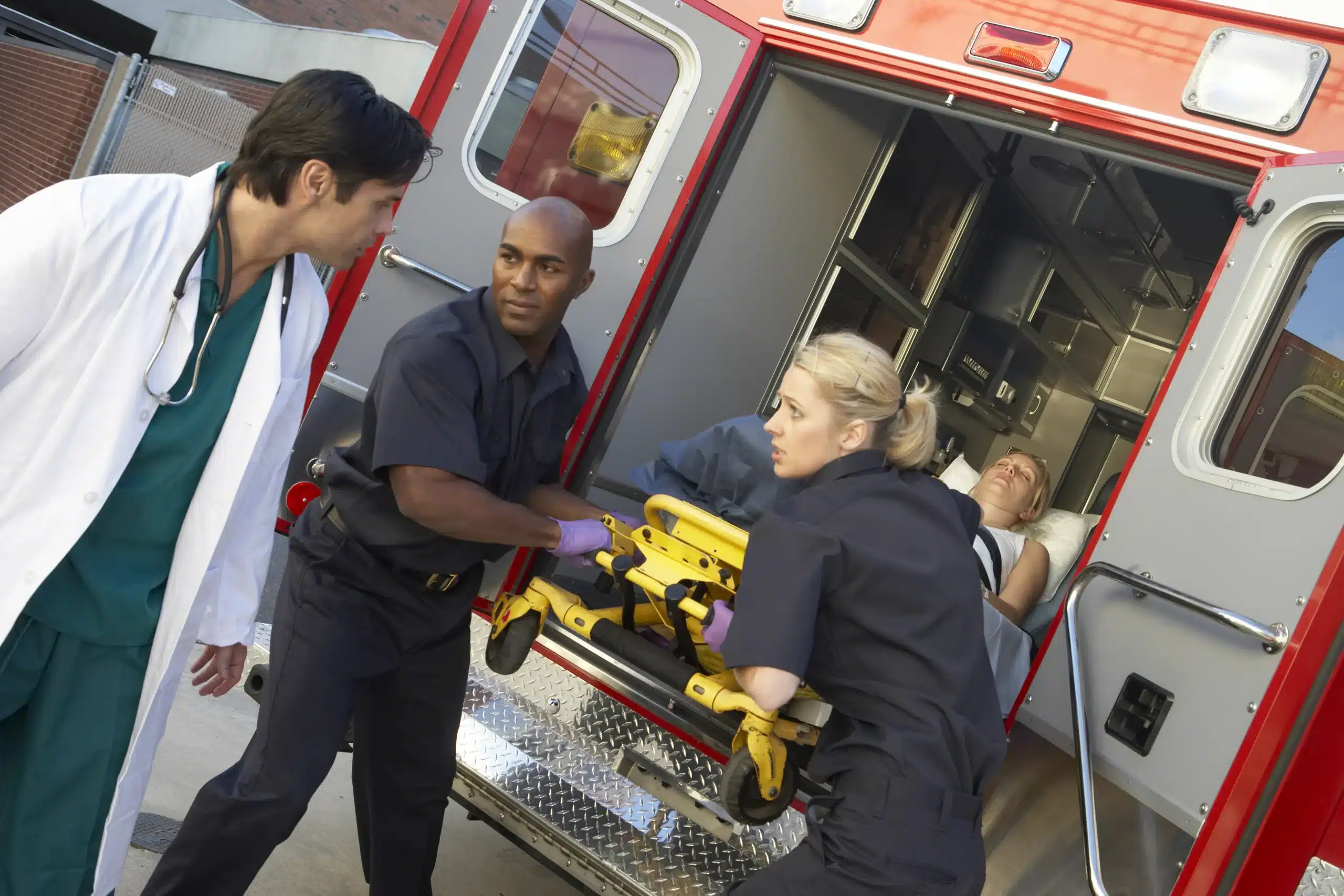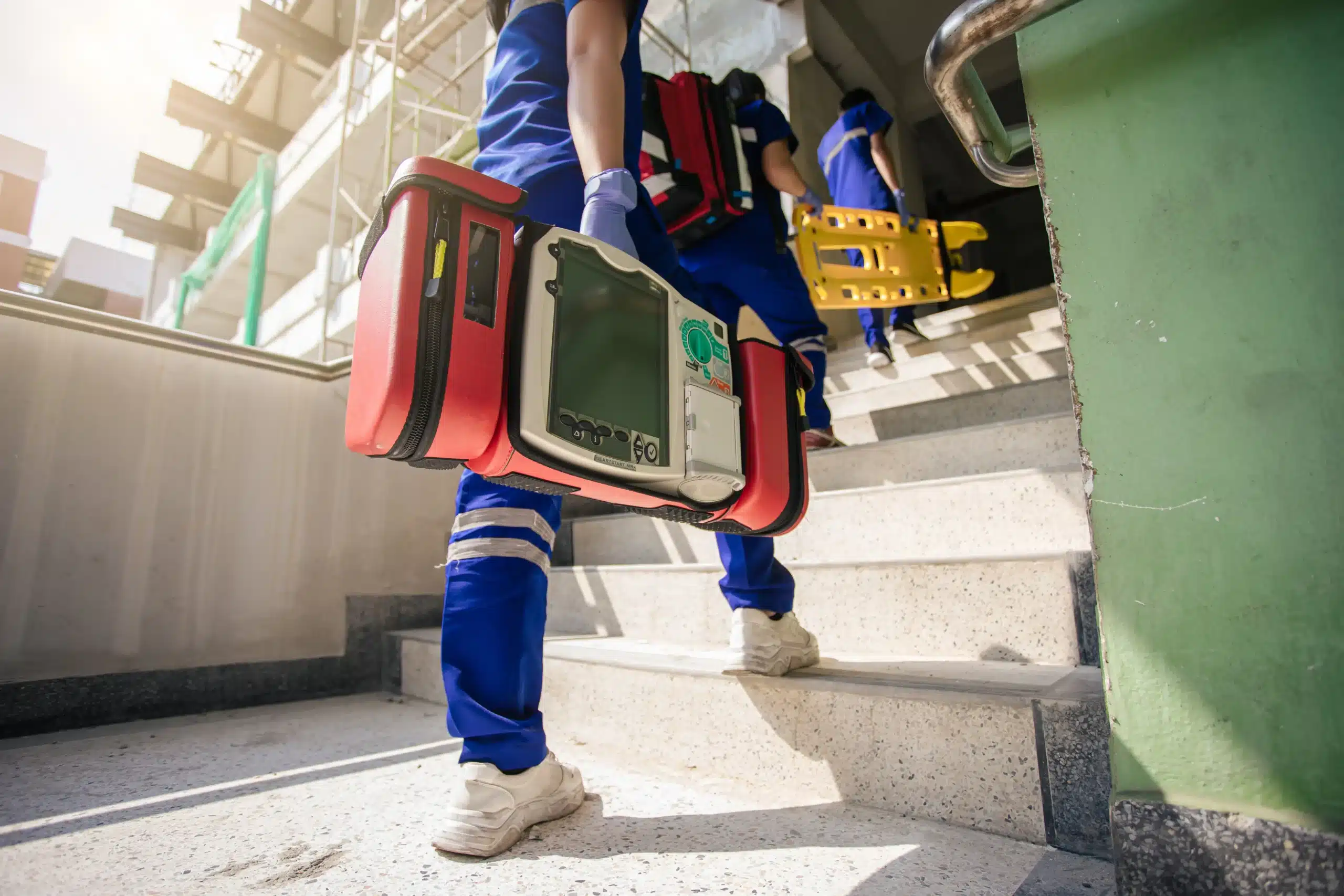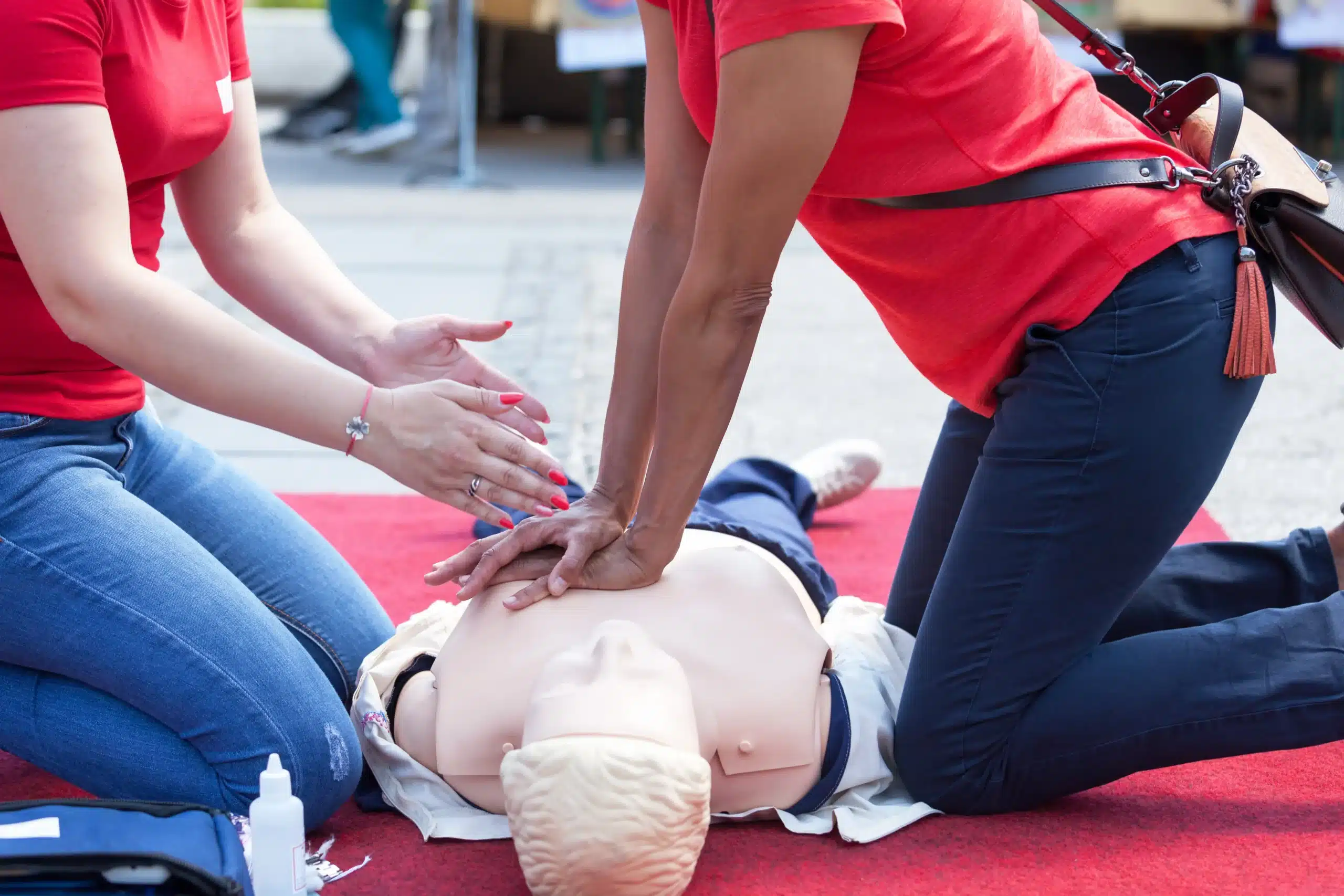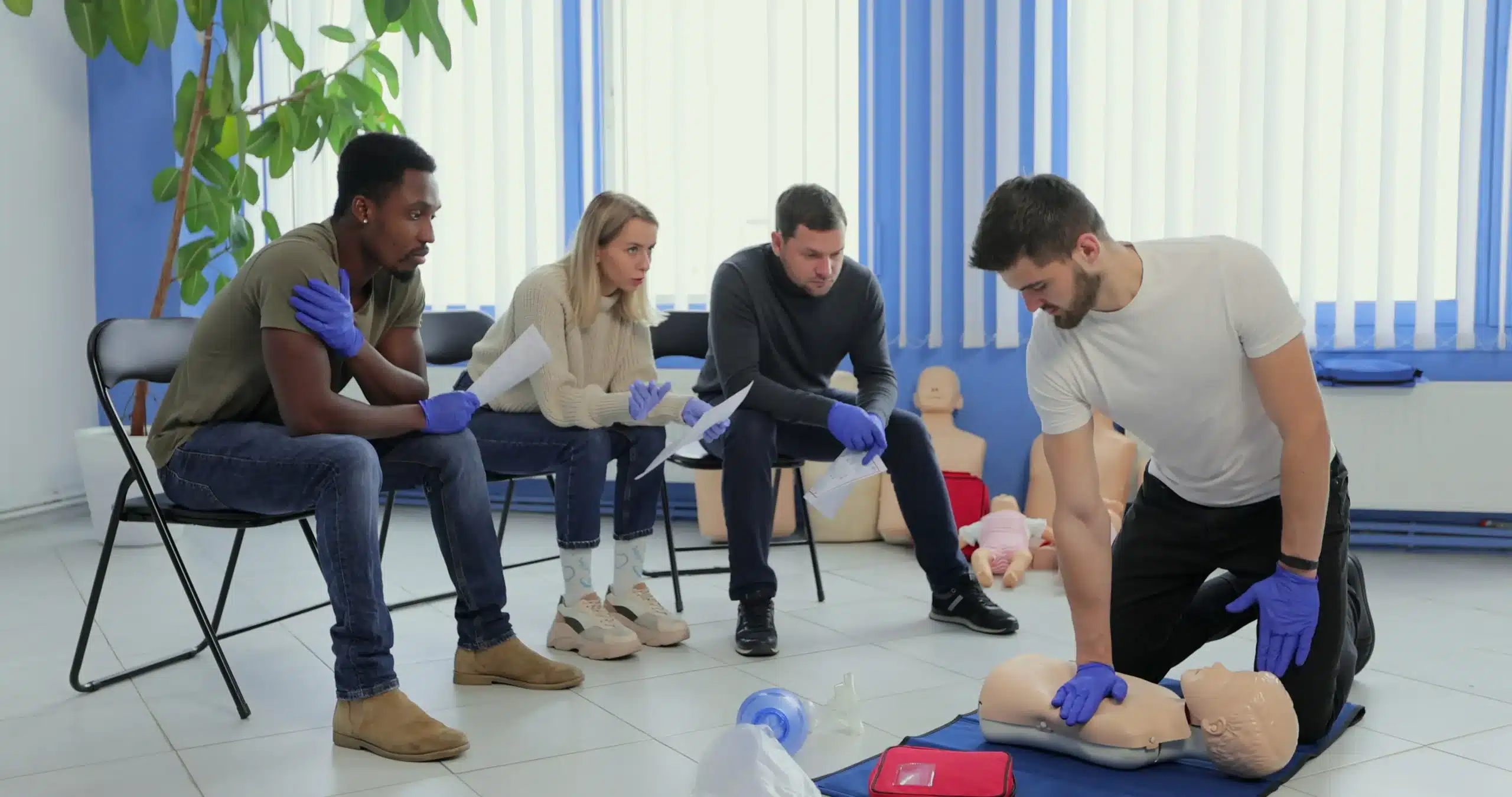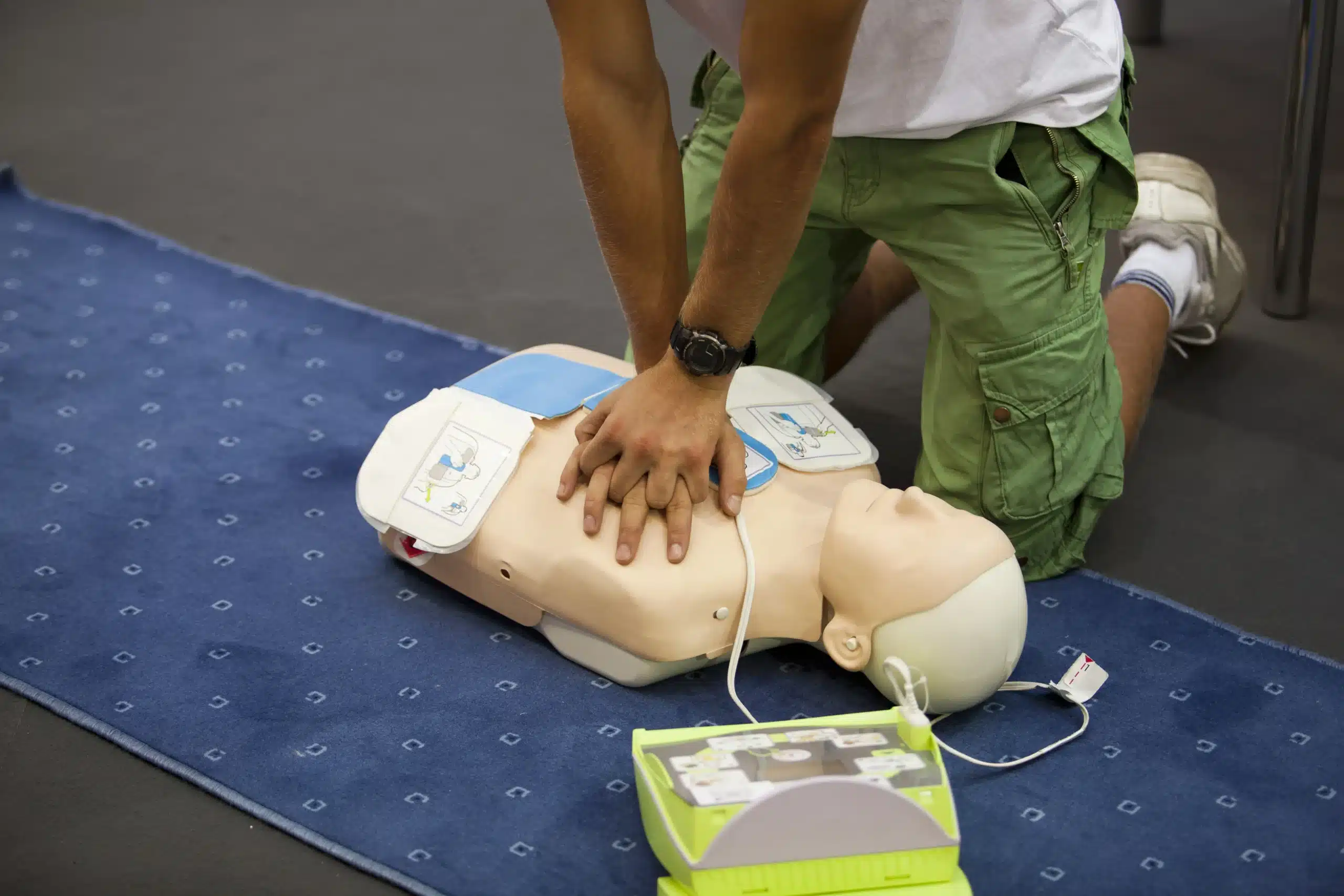Working in healthcare in Port Chicago? You know how crucial it is to stay updated on the latest life-saving techniques. Whether you’re a seasoned healthcare provider or just starting out, understanding Advanced Cardiac Life Support (ACLS) is essential for delivering high-quality patient care. This guide breaks down everything you need to know about ACLS certification in Port Chicago, from course details and requirements to finding the right training program and maintaining your certification. We’ll cover the basics of ACLS, who needs it, where to find training in Port Chicago, what to expect during the course, and how to prepare. Plus, we’ll discuss the costs involved and how to make the most of your training investment. Let’s get started!
Key Takeaways
- ACLS is essential for healthcare professionals in critical care: This certification equips you with the advanced skills needed to manage serious cardiovascular emergencies.
- Choose an ACLS course that fits your needs and budget: Consider factors like cost, schedule, and learning preferences (online or in-person). Providers like Martinez CPR Classes offer a range of options.
- Stay current with your ACLS certification: Renew your certification every two years and pursue continuing education opportunities to maintain your skills and knowledge.
What is ACLS?
Knowing what ACLS is and who it’s for can help you decide if this certification is right for you. This overview explains the basics of Advanced Cardiovascular Life Support and the skills you’ll gain through training.
ACLS Definition
ACLS stands for Advanced Cardiovascular Life Support. This certification is essential for healthcare professionals who work in high-acuity settings like emergency rooms, intensive care units, and critical care transport. These providers need to know how to handle serious cardiovascular emergencies.
Who Needs ACLS?
ACLS certification is designed for healthcare providers who direct or participate in managing cardiopulmonary arrest or other cardiovascular emergencies. It’s a valuable credential for anyone working on the front lines of critical care. If you’re considering ACLS training, check with your employer to see if it’s required or recommended for your role.
Skills Gained in ACLS Training
ACLS training gives healthcare practitioners advanced life support techniques and critical thinking skills. You’ll learn how to apply algorithms, manage airways, and administer medications in emergency situations. These skills are essential for providing effective care during life-threatening events.
Top ACLS Providers in Port Chicago
Finding the right Advanced Cardiac Life Support (ACLS) training is crucial for healthcare professionals. Luckily, Port Chicago and the surrounding areas offer several reputable options. Whether you’re seeking initial certification or a renewal course, consider these providers:
Martinez CPR Classes
Martinez CPR Classes offers a comprehensive range of American Heart Association (AHA) certifications, including ACLS renewal. As a woman-owned AHA Training Center, they emphasize high-quality instruction and adhere to the latest AHA guidelines. Conveniently located, they serve Martinez, Port Chicago, and Benicia, making them accessible for professionals in the area. They also offer a low price guarantee and discounts for group classes, making them a cost-effective choice. For those interested in other certifications, they also offer RQI classes.
AHA Training Centers
Many other AHA Training Centers in the area provide ACLS courses. These centers often offer both in-person and online ACLS training, catering to different learning preferences. Check the AHA website or contact Martinez CPR Classes for a list of approved training centers near you. They can often guide you to the best fit for your needs.
Local Hospitals and Medical Centers
Hospitals and medical centers in and around Port Chicago frequently host ACLS courses, especially for their staff. These courses are sometimes open to outside healthcare providers as well. Inquire with hospitals like Sutter Delta Medical Center or Kaiser Permanente Vallejo Medical Center about potential training opportunities. These in-house programs can offer a practical, hands-on learning experience.
Online ACLS Providers
For those with busy schedules or who prefer self-paced learning, online ACLS certification is a viable option. Reputable online providers offer comprehensive training materials and online exams. Be sure to choose a program that includes a hands-on skills assessment component, as this is essential for ACLS certification. While convenient, online courses typically require more self-discipline. Consider your learning style and preferences when making your decision.
ACLS Course Details & Requirements
Prerequisites
Before starting an Advanced Cardiac Life Support (ACLS) course, you’ll need a current Basic Life Support (BLS) certification for healthcare providers. Many ACLS providers, including Martinez CPR Classes, offer BLS certification if you need to renew or obtain it. This ensures you have the foundational CPR skills and basic cardiovascular life support knowledge required for the more advanced ACLS training.
Course Structure and Duration
ACLS courses typically involve interactive lectures, hands-on skills practice, and simulated patient scenarios. These simulations, often called “megacodes,” can be challenging, requiring quick thinking and precise execution of procedures under pressure. You’ll work through various scenarios, like cardiac arrest, stroke, and respiratory emergencies, learning to assess, diagnose, and manage these critical situations as part of a team. Many ACLS renewal courses use blended learning, combining online materials with in-person skills sessions. This lets you review core concepts at your own pace before focusing on hands-on training. Initial ACLS courses usually take one or two days, while renewal courses are generally shorter, focusing on updating your skills and knowledge.
Exams and Practical Assessments
You’ll need to pass both written exams and practical skills assessments to earn your ACLS certification. The written exam tests your understanding of ACLS protocols and algorithms. The practical assessments evaluate your ability to perform essential skills, like airway management, rhythm recognition, and drug administration, in simulated emergencies. These assessments can be tough, so prepare beforehand. Resources like those from Cascade Training offer helpful strategies for common challenges during ACLS assessments. Practice tests and answers are also available online.
ACLS Certification Cost in Port Chicago
Getting your ACLS certification or keeping it current involves some expense. Understanding the typical costs can help you budget and find the best value for your training.
Average Certification Cost
In Port Chicago, the average cost for an initial ACLS course is around $213. Renewal courses are typically less expensive, averaging around $165. These prices can vary based on the training center and included course materials. Martinez CPR Classes offers a low price guarantee to help make training accessible.
Renewal Costs
It’s important to keep your ACLS certification up to date. Renewal courses often use a blended learning format, combining online learning with hands-on skills practice. This approach offers flexibility and helps you renew your certification efficiently. For a complete guide to ACLS renewal in Port Chicago, check out this helpful resource.
Group Discounts
If you’re coordinating training for a group, look for providers that offer group discounts. Discounts for groups can significantly reduce the cost per person, making it easier to train your whole team. This can be a great option for businesses or organizations in Port Chicago looking to certify multiple employees at once.
Choosing the Right ACLS Course
Picking the right Advanced Cardiovascular Life Support (ACLS) course is a big decision, especially with the range of options available. This section breaks down key factors to help you make the best choice.
Factors to Consider
Beyond the core curriculum, several factors can influence your ideal ACLS course. Cost is often a primary concern. As a woman-owned American Heart Association (AHA) Training Center, Martinez CPR Classes offers competitive pricing on all our courses, including BLS, ACLS, PALS, CPR, and First-Aid. We also offer discounts for group classes, making team training more affordable. Also, think about your schedule and learning style. Do you prefer a condensed format or spreading the material out over time? Finally, consider the location and its accessibility.
Online vs. In-Person Training
Deciding between online and in-person ACLS training often depends on your personal preference and how you learn best. Online ACLS renewal courses offer flexibility, allowing you to learn at your own pace and fit the training around your schedule. Hybrid ACLS renewal courses combine online convenience with crucial in-person skills practice. While online learning is convenient, it doesn’t replace the required in-person skills assessment for AHA certification. Hands-on practice and direct interaction with an instructor are essential for truly mastering these techniques.
ACLS vs. BLS
Understanding the difference between ACLS and BLS is important, especially if you’re not sure which certification you need. ACLS focuses on advanced life-saving techniques for healthcare professionals working in critical care settings like emergency rooms and intensive care units. BLS teaches fundamental life-saving skills applicable to anyone, regardless of healthcare experience. Both certifications are valuable, but ACLS builds on the foundation of BLS, giving healthcare providers the advanced skills to handle complex cardiovascular emergencies. If you’re a healthcare provider, ACLS certification is likely necessary for your career.
How to Enroll in an ACLS Course
Ready to take the next step and enroll in an ACLS course? Here’s what you need to know about registration, required documents, and payment options. We’ll make it straightforward so you can focus on gaining these life-saving skills.
Registration
Finding the right ACLS course and registering is easier than you think. Many providers, including Martinez CPR Classes, offer both in-person and online ACLS training. Think about which learning environment best suits your needs and schedule. In-person classes provide hands-on practice and direct interaction with instructors, while online courses offer flexibility for those with busy schedules. Martinez CPR Classes also provides convenient recertification courses, including the RQI program, which offers a flexible way to renew your certification. Once you’ve chosen your format, check the course schedule and select a date and time that works for you. Most providers have user-friendly online registration systems, allowing you to sign up quickly.
Required Documents
Before you head to class (whether in-person or virtual), gather any necessary documents. This might include a copy of your current healthcare provider license or a government-issued ID. If you’re renewing your ACLS certification, bring your expiring card as well. For some specialized courses, you may need proof of prerequisites, such as a current BLS certification. Check with your preferred training provider, like Martinez CPR Classes, about group discounts and how they can help you save on ACLS renewal for your team. Having everything prepared beforehand streamlines the check-in process and ensures a smooth start to your training.
Payment Options
ACLS courses vary in price, so research different providers to find one that fits your budget. As a woman-owned AHA Training Center, Martinez CPR Classes offers competitive pricing on all courses, including BLS, ACLS, PALS, CPR, and First-Aid. We also offer discounts for group classes, making training your entire team cost-effective. Many providers accept various payment methods, including credit cards, debit cards, and sometimes even financing options. Some workplaces may also cover the cost of ACLS training for their employees, so it’s worth checking with your employer. Understanding the payment options upfront helps you plan accordingly.
Prepare for ACLS Certification
Getting ready for ACLS certification involves more than just showing up. Thorough preparation can make a real difference in your confidence and performance. Here’s how to get ready:
Study Materials and Resources
Many ACLS renewal courses now use blended learning, combining online study materials with in-person skills practice. Take advantage of these resources. Martinez CPR Classes offers a range of AHA certifications, including ACLS renewal, and provides access to comprehensive materials. Familiarize yourself with the current ACLS guidelines before your course. This preparation will give you a solid foundation.
Practice Exams and Simulations
One of the more challenging aspects of ACLS training is mastering megacode simulations. These simulations require quick decision-making and precise execution of procedures in a stressful environment. Practice applying algorithms and working through various scenarios to build your confidence. You can find practice exams and simulations online or through your chosen training provider. Working through these scenarios will help you develop the quick thinking and adaptability needed for the ACLS skills evaluation.
Tips for Success
Prioritize your preparation. Set aside dedicated study time and create a study schedule that works for you. Review the ACLS guidelines before the course begins. This will allow you to focus on the practical skills during the in-person training. Also, make sure you’re up-to-date with the latest ACLS guidelines from the American Heart Association. Being prepared will not only help you succeed in the course but also equip you to provide the best possible care in real-life emergencies. Consider joining a group discount class to practice with others.
Maintain Your ACLS Certification
Once you’ve earned your ACLS certification, staying current is key. Your certification is typically valid for two years. Here’s what you need to know about renewing your ACLS certification and staying up-to-date with the latest guidelines.
Renewal Requirements
The good news is that renewing your ACLS certification is often more streamlined than the initial certification process. Many ACLS renewal courses utilize blended learning, combining online materials with in-person skills practice. This flexible approach allows you to review core concepts at your own pace before demonstrating your skills in a hands-on setting. Check with your certifying body, often the American Heart Association, for specific renewal requirements.
Continuing Education
Beyond the standard renewal process, ongoing continuing education is crucial for any healthcare professional. Medicine is constantly evolving, and staying informed about the latest advancements in cardiac care is essential for providing the best possible patient care. Martinez CPR Classes offers convenient recertification courses, including the RQI program, which provides a flexible way to renew your certification and refresh your skills. Look for opportunities to expand your knowledge and skills through workshops, conferences, and online resources.
Staying Updated on Guidelines
Staying current with the latest ACLS guidelines and updates from the American Heart Association is essential for maintaining your competency. These guidelines are regularly reviewed and updated to reflect the most current scientific evidence and best practices in resuscitation. You can find the latest information and updates on the American Heart Association website. Consider subscribing to relevant publications or joining professional organizations to stay informed about changes in protocols and procedures. This commitment to continuous learning will not only help you maintain your certification but also enhance your ability to provide effective and timely care in emergency situations.
Related Articles
- ACLS Courses in Benicia: The Complete Guide – Martinez CPR Classes
- ACLS Certification in Martinez: Your Comprehensive Guide – Martinez CPR Classes
- ACLS Courses in Port Chicago: Your Complete Guide – Martinez CPR Classes
Frequently Asked Questions
What exactly does ACLS training cover?
ACLS training focuses on advanced life support techniques for managing life-threatening cardiovascular emergencies. It covers topics like airway management, rhythm recognition, and drug administration, and emphasizes teamwork and effective communication in high-pressure situations. The training often involves realistic simulations to help you apply your knowledge and skills in a safe learning environment.
How do I choose between online and in-person ACLS training?
Both online and in-person ACLS training have their advantages. Online courses offer flexibility, allowing you to learn at your own pace and fit the training around your schedule. In-person classes provide hands-on practice, direct interaction with instructors, and the opportunity to learn from the experiences of your peers. Consider your learning style and schedule when making your decision. Keep in mind that regardless of the format you choose, a hands-on skills assessment is required for ACLS certification.
If I’m already BLS certified, why do I need ACLS?
BLS certification provides a foundation in basic life support skills, while ACLS builds upon that foundation, equipping healthcare providers with the advanced knowledge and skills needed to manage complex cardiovascular emergencies. ACLS focuses on team-based resuscitation and advanced interventions, making it essential for healthcare professionals working in critical care settings.
How much does ACLS certification cost, and are there any discounts available?
The cost of ACLS certification varies depending on the training provider and location. Renewal courses are typically less expensive than initial certification courses. Many providers offer discounts for group training, which can be a cost-effective option for organizations. It’s always a good idea to contact the training center directly to inquire about pricing and any available discounts.
How can I stay updated on the latest ACLS guidelines after I’m certified?
Staying current with the latest ACLS guidelines is crucial for providing effective patient care. The American Heart Association regularly updates its guidelines based on the latest scientific evidence. You can stay informed by visiting the AHA website, subscribing to relevant publications, and participating in continuing education opportunities. Many training providers also offer refresher courses to help you maintain your skills and knowledge.
